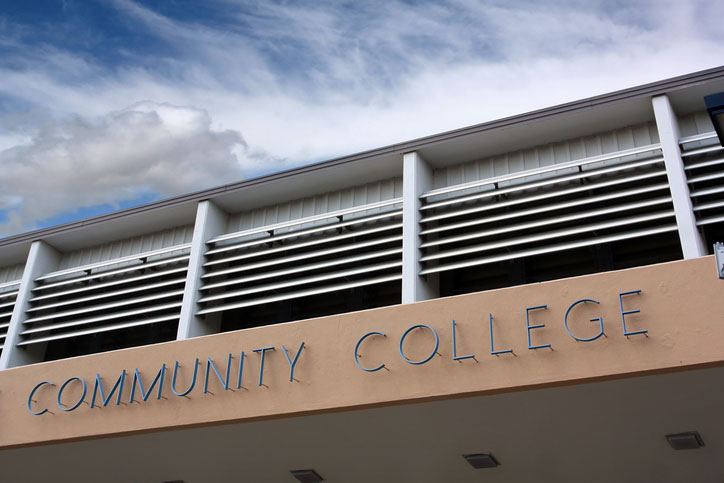Written by Dr. Emily R. Thornton, PhD, LCADC , Last Updated: November 6, 2025
Certificate programs may qualify you for entry-level substance abuse counseling in approximately 20-25 states without a degree. In other states, certificates supplement associate or bachelor's degrees to meet coursework requirements. Program coursework typically takes 3-12 months, though some may extend longer with practicum requirements. Costs range from $2,000-$8,000. Based on the last verified data (Nov 2024), state requirements may change.
Table of Contents
- What Is an Addiction Counselor Certificate or Diploma?
- Educational Certificates vs. Professional Certification
- Who Are Certificate Programs Designed For?
- Diploma vs. Certificate: What's the Difference?
- Will a Certificate Meet Your State's Requirements?
- Finding the Right School for Your Certificate Studies
- Online Substance Abuse Counseling Certificates
- Courses You'll Take in a Certificate Program
- Salary Potential With an Addiction Counselor Certificate
One thing you learn fast in the field of substance use disorders and addictions is that everyone has to start somewhere. Whether it's the struggle out from the depths of substance use or starting in on an education to help those people, sometimes grabbing that first rung is the most important step.
That's what a diploma or undergraduate certificate in substance use disorder counseling can be. Open to anyone with a high school education or a GED, these programs deliver the basics in a very complex field. But those essentials are enough to get you started in making a real difference with people who really need it.

With too many patients to handle and a crisis that is only growing, certificates are a fast path to creating capable counselors in addiction therapy.
What Is an Addiction Counselor Certificate or Diploma?
An undergraduate certificate (often called a certificate of completion) or diploma is a college program that takes an essential set of classes and experiential study in substance use disorder counseling and wraps it up in a package where coursework can take anywhere from three months to a year to complete. Some programs may extend beyond 12 months depending on internship or practicum requirements.
This is only half the level of education that comes with a basic associate degree, but in many states, it offers the required education hours and field experience to qualify graduates for entry-level work in substance use disorder (SUD) counseling. Keep in mind that while classroom coursework may finish in 3-12 months, obtaining the supervised practicum or field experience hours required by many states for licensure may add additional months or even years to your timeline.
- Certificates in substance abuse counseling are offered by both four-year universities and community colleges. They focus narrowly on the topic and may take only a few months to complete.
- Diplomas in substance abuse counseling are less common but tend to be offered by technical schools and community colleges, and are usually around one year in length.
Going along with the complicated nature of both substance use disorders and social perspectives on them, you'll find these programs offered with many different titles:
- Diploma in Addiction Psychology
- Addiction and Substance Use Undergraduate Certificate
- Substance Abuse Counselor Education Technical Diploma
- Alcohol and Drug Abuse Counseling Certificate
- Certificate in Substance Use Disorder Treatment
- Addiction Services Certificate
- Certificate in Addiction Studies Counseling
- Addictions Counseling Certificate
Educational Certificates vs. Professional Certification: Understanding the Distinction
Any time anyone starts talking about certificates in the world of SUD counseling, you have to be careful to understand the distinction between educational certificates and professional certification.

This page is entirely about educational certificates: college-level programs that prepare you with knowledge and skills for the tough work of SUD counseling.
That's different from professional certification: a process of validating and testing those skills that qualify you for practice as a counselor.
An educational certificate can be one of the required steps toward professional certification. In fact, you'll find that certificate programs in your state are expressly designed to meet your state's certification requirements. But it's not the only requirement. You also have to:
- Complete an extensive amount of supervised experience and direct practice in the field
- Pass an exam recognized in your state
Important: Earning an educational certificate doesn't automatically qualify you for state licensure or certification. You must still meet supervised practice hours, pass required exams, and fulfill all state board requirements.
Professional certifications are granted by various state boards or national organizations like NAADAC (National Association of Alcoholism and Drug Abuse Counselors) and IC&RC (International Certification & Reciprocity Consortium). In some states, becoming nationally certified through NAADAC is a requirement to practice. In others, it offers a path to state certification, though it may not be required.
Who Are Certificate Programs Designed For?
A certificate is a great first step for anyone with no college behind them. It can also be an attractive choice for people with degrees in other fields who could benefit professionally from a ground-level education in SUD counseling.
A certificate or diploma can be a fast track to meeting state educational requirements for certification or licensure in SUD counseling:
- In states with no degree requirements, it can satisfy 100% of the education requirements.
- In states where an associate or bachelor's degree is required, it can cover the required courses if you already meet the degree requirement, but your degree is in an area other than substance abuse counseling.
Professionals like mental health counselors and social workers who are already licensed in their field and hold degrees may still need substance abuse training via a certificate program to qualify for additional SUD counseling credentials.
Diploma vs. Certificate: What's the Difference?
Generally, diplomas are longer and more complete courses of training in the profession. Certificates can be faster and more focused but come with less preparation.
This is often only true when comparing programs at an individual school. In many cases, a certificate from one college may have just as many credits as a diploma from another. Both may offer the full required educational hours for SUD counseling in your state. There's no single answer, so you should evaluate each program individually rather than relying on the title.
What's the Downside to a Certificate Compared to a Full Degree?
Certificate programs are short on the broader and deeper kinds of education that do come with complete degrees. Certificates and diplomas focus very much on the subject of substance use and addiction treatment. You won't find any of the common classes in math, science, or social studies that are required in degrees.
Can Credits in a Certificate Program Be Transferred to a Degree Program Later?
Yes. Depending on the school, either type of program may also offer full college credits that can later be applied toward an associate degree.
Is There a Significant Cost Savings by Going with a Certificate?
Yes. Certificate and diploma options are considerably less expensive than a full college degree, often a quarter the cost of earning an associate degree and a small fraction of what a bachelor's would cost. Typical certificate programs range from $2,000 to $8,000, compared to $8,000-$15,000 for an associate degree or $40,000-$80,000 for a bachelor's degree.
Will a Substance Abuse Counselor Certificate Meet Licensing Requirements in My State?

Note: You might be wondering why we keep referring to "license or certification." Some states license counselors directly through a state agency that assesses qualifications and awards a license. Others designate a nonprofit professional board that grants substance use counselor certification.
State requirements change frequently. Always verify current requirements with your state licensing board before enrolling in any program.
Your ultimate goal in earning a certificate is to support getting a state license or certification and finding a position as a substance use disorder counselor. Every state requires a formal credential to practice even basic levels of chemical dependency and addiction counseling.
You'll find that certificates or diplomas offer a path to licensing or certification in each state, but they aren't always the only educational box to check. In many states, you'll also need a degree under your belt, anything from a two-year associate's program to a four-year bachelor's.
States Where a Certificate is All You Need
In these states, there is no requirement to hold a degree, and a certificate alone would be enough to meet the education standards for entry-level state licensure or certification.
Last verified: November 2024. This list may not be comprehensive. State requirements change frequently and should always be confirmed directly with your state licensing or certification board before enrolling in any program.
| State | Titles |
|---|---|
| Alaska | Chemical Dependency Counselor I/Chemical Dependency Counselor II |
| Alabama | Certified Alcohol and Drug Counselor |
| Colorado | Certified Addiction Counselor II |
| Connecticut | Certified Alcohol and Drug Counselor |
| Georgia | Certified Addiction Counselor I |
| Hawaii | Certified Substance Abuse Counselor |
| Iowa | Certified Alcohol & Drug Counselor |
| Idaho | Certified Alcohol-Drug Counselor |
| Illinois | Certified Alcohol & Drug Counselor |
| Massachusetts | Certified Alcohol & Drug Counselor |
| Maine | Certified Alcohol & Drug Counselor/Licensed Alcohol & Drug Counselor/Licensed Alcohol & Drug Counselor II |
| Michigan | Certified Alcohol & Drug Counselor |
| Missouri | Addiction Counselor II/Addiction Counselor III/Certified Alcohol & Drug Counselor |
| North Carolina | Certified Alcohol and Drug Counselor |
| Nebraska | Licensed Alcohol & Drug Counselor |
| New Jersey | Certified Alcohol & Drug Counselor |
| New Mexico | Certified Alcohol & Drug Counselor |
| Pennsylvania | Certified Associate Addiction Counselor |
| Rhode Island | Certified Alcohol & Drug Counselor/Licensed Chemical Dependency Professional |
| South Dakota | Certified Addiction Counselor |
| Tennessee | Level I Licensed Alcohol & Drug Abuse Counselor |
| Texas | Alcohol & Other Drug Abuse Counselor |
| Wisconsin | Substance Abuse Counselor |
| West Virginia | Alcohol & Drug Counselor |
States Where a Certificate Can Give You the Courses You Need if You Already Have a Degree or are Currently Earning One
In these states, if you already hold a degree or are in the process of earning one in a related field like psychology or social work, you can stack on a certificate to satisfy specific coursework requirements, either for entry-level licensure or more advanced licenses as shown.
Last verified: November 2024. This list may not be comprehensive. State requirements change frequently and should always be confirmed directly with your state licensing or certification board before enrolling in any program.
| State | Titles | Level of Education |
|---|---|---|
| Alabama | National Certified Addiction Counselor II | Bachelor |
| California | Certified Alcohol Drug Counselor I/Certified Alcohol Drug Counselor II | Associate/Bachelor |
| Colorado | Certified Addiction Counselor III | Bachelor |
| Washington DC | Certified Addiction Counselor I/Certified Addiction Counselor II | Associate/Bachelor |
| Delaware | Certified Alcohol & Drug Counselor | Associate |
| Georgia | Certified Addiction Counselor II | Bachelor |
| Montana | Licensed Addiction Counselor | Associate |
| New Hampshire | Licensed Alcohol & Drug Counselor | Associate |
| New York | Credentialed Alcoholism & Substance Abuse Counselor II/Advanced Credentialed Alcoholism & Substance Abuse Counselor | Associate/Bachelor |
| Ohio | Licensed Chemical Dependency Counselor II/Licensed Chemical Dependency Counselor III | Associate/Bachelor |
| Oregon | Certified Alcohol & Drug Counselor I/Certified Alcohol & Drug Counselor II | Associate/Bachelor |
| Pennsylvania | Certified Alcohol & Drug Counselor | Bachelor |
| Texas | Licensed Chemical Dependency Counselor | Associate |
| Utah | Substance Use Disorder Counselor/Advanced Substance Use Disorder Counselor | Associate/Bachelor |
| Washington | Substance Use Disorder Professional | Associate |
| Wisconsin | Clinical Substance Abuse Counselor | Associate |
These professional licenses and certifications unlock positions in just about every kind of specialty and population practice in substance use disorder counseling. All of them give you the opportunity to make a real difference with your efforts.
Finding the Right School for Your Addiction Counselor Certificate Studies

Finding the right school for your certificate or diploma in substance use disorder counseling usually starts close to home.
Programs offered by colleges or universities in your state are the ones most likely to line up with licensing and certification requirements.
They are also the places closest to the local substance use environment. While substance use disorders are a national problem, there are often very regional ways in which they hit home. Studying at a school that is most familiar with the types of patients and challenges you will be facing in practice will give you a real edge.
Of course, more than just locality goes into a good SUD counseling education. You'll also want to evaluate certificate programs in terms of their:
- Instructors - Addiction counseling instructors need to have the right balance of expert academic knowledge and hard-won empathy and street smarts. Your training should come from people who have walked the walk and gone deeper into understanding the theory and treatment behind the tragedies.
- Curriculum - It's clearly important to study the most in areas that you are most likely to practice in. So you'll want to find the right fit for classes that hit the pieces of SUD counseling you are most interested in, whether that's teen outreach or incarceration group counseling.
- Reputation - Most chemical dependency certificate programs have been around long enough to have a couple generations of graduates out on the street. You can be sure the community has taken note of what kind of job they are doing. Checking around to see how well-prepared and well-respected graduates from a particular school are is a no-brainer when it comes to informing your choice.
All other things being equal, it's also a good idea to check on whether or not you will earn transferable credits through your studies. It's tough to predict the future, but many people who get started on the ground floor in SUD counseling eventually decide to go for more advanced licenses and more responsibility. That means earning higher level degrees. If you can, it's best to keep your options open for getting an associate degree or even a bachelor's without having to repeat any training.
Making Sure Your Substance Use Disorder Counselor Certificate Is Accepted Means Looking for Official Accreditation

One of the most important aspects of picking a program in some states is whether or not it is accepted by the relevant licensing or certification body there.
Pretty much every college, even community colleges, in the United States holds a basic accreditation that verifies that they offer a quality education. Hitting those basic standards is always important. In-depth evaluations by independent auditors that look into instructor hiring practices, academic standards, and administrative competence ensures high levels of quality in general.
But in a specialized field like substance use disorders, many state agencies require an additional stamp of approval to make sure you're getting the kind of training that fits licensing regulations.
Not all states offer or require a full accreditation process. In some cases, they simply review coursework to ensure it meets the required legal standards.
The only real way to ensure this is to check with the school you're interested in, or with the state board responsible for issuing credentials in your state. They all have different approaches. Some state agencies accredit programs in their states directly, while in other cases they may rely on a nonprofit organization in that state to evaluate programs.
Online Substance Abuse Counseling Certificates Make Getting an Education Easy

Whether you decide to go with a school in your area or one halfway across the country, picking an online substance abuse counselor certificate program can be a game changer.
Even if the classroom is in your neighborhood, online studies can make a lot of sense. Many people coming into this field are non-traditional students. You may have a family, be holding down a job, or have other essential obligations that make it tough for you to consistently show up at a particular building at a particular time every week.
Substance abuse certificate online courses are typically asynchronous, which means you don't need to stream that content at the same time it's originally presented. That means you can catch up on your coursework on a break or after you've put the kids to bed.
Because online means anywhere, you don't have to worry about relocating and all the various costs and drawbacks that come with it.
With the tools that come with learning management systems, you can also keep plugged in to your professors and fellow students. Shared forums, chat channels, and document sharing portals give you all the communication options you need.
Of course, this doesn't typically include any experiential parts of the program. But most substance abuse counselor certificate online programs are excellent at lining up local options for you to cover practicum or internship requirements.
Important: Before enrolling in an online certificate program, verify that the program's credits are accepted by your state's licensing or certification board and that the program meets your state's specific supervised practice and internship requirements.
Courses You'll Take in a Substance Abuse Counselor Certificate Program

Certificate programs are particularly satisfying because they unlock some of the mysteries of addiction and substance use disorders, and they hand you the tools you need to do something about them.
That combination of knowledge and skill comes through carefully arranged courses that build up your expertise step-by-step through the program.
Some entry-level SUD counseling certificates even come with a class offering basic study skills and other information to help make your transition to the college environment successful.
Most certificates have sets of classes that fall into four basic categories:
Pharmacological and Psychological States of Addiction
Classes in drug action and interaction give you basic concepts in chemistry and psychopharmacology so you understand what your patients are dealing with. You'll explore the psychological elements of dependency and understand developmental and genetic factors that predispose patients to substance use disorders. Some courses may go into addiction at various human developmental stages, handing you the tools you need to differentiate between SUD in teens and adults. You may also explore medical issues rising from SUD and issues in clinical treatment.
Counseling and Assessment
These classes develop your abilities to suss out the roots of substance use disorder in individual patients and come up with successful approaches to treatment. You'll learn common counseling techniques, including group and multicultural counseling.
Each will take you through both theory and practice, with techniques in:
- Active listening
- Cognitive behavioral therapy
- Reflective feedback
- Building rapport
There are also typically classes in the nuts and bolts of case planning and management. You'll learn how to make referrals, track cases, and explore connections and resources in the human services system that you can use to help individual patients.
Professional and Ethical Conduct
Working with a tremendously vulnerable, unstable population means extra care has to be taken to maintain high professional and ethical standards at every step. These classes not only tell you what the standards are but also instruct you in how to apply them in the wide range of tricky situations that SUD counselors find themselves in.
Also commonly included are classes in self-care and developing boundaries. Confronting tragedy on a daily basis takes a toll among counselors as well as patients. Most programs offer you tools to help keep the darkness at bay.
Practical Hands-on Experience
In certificate courses leading to qualification as a SUD counselor in your state, you're likely to find internship or supervised practicum courses on top of your classroom studies.
These are designed to help build your required field experience hours for licensure or professional certification. But they also help you bridge that vital gap between theory in textbooks and the gritty reality of practice on the streets.
With an expert supervisor helping you through your first hours of patient contact, you can gain vital experience without risk of making dangerous mistakes. Woven in with your other courses, this is a valuable way to really drive home the concepts and techniques you are learning about.
What Sort of Salary Is Possible With an Addiction Counselor Certificate?

Although salary isn't at the top of anyone's mind when they are considering a career in this field, it's probably true that someone looking at substance abuse certificate programs versus full degrees probably needs to know what the financial outcomes will look like.
According to the Bureau of Labor Statistics (BLS), the median annual salary for the broader category of substance abuse, behavioral disorder, and mental health counselors was $56,230 per year (May 2024 data). This figure represents counselors at all education levels, not specifically certificate-only holders.
That level assumes qualifications of a bachelor's degree at the entry level. If you are planning on getting started with only a certificate, or a certificate with an associate degree from a different field, you're probably going to start out somewhat lower. BLS shows that the lowest 10 percent of counselors earn about $38,240 per year, which is probably more in the ballpark for this level of education.
Even the lower 25 percent can make as much as $46,490 annually, so there is plenty of room to move up. In some states, it's possible, although not common, to get all the way to the top of the profession with only a certificate. That can put you in the top ten percent of the field, earning over $93,710 per year.
Like all jobs, those numbers will vary based on your location, experience, and expertise. For example, counselors working in local government jobs or in offices of other health care providers routinely bring in more than the average. Learn more about salary expectations for substance abuse counselors in different settings and credential levels.
But this is a field where the value of your service really transcends money. There's no price you can put on dragging someone out of the darkness of substance abuse. The greatest rewards you will find from a substance abuse counselor certificate will come in the happy, productive lives of the patients you help and the communities around them.
Key Takeaways
- Certificate program coursework typically takes 3-12 months to complete (some programs may extend longer with practicum requirements) and costs $2,000-$8,000, significantly less than associate or bachelor's degrees
- In many states (approximately 20-25), certificates alone may meet the educational requirements for entry-level substance abuse counselor licensure or certification
- Certificates can supplement existing degrees in other fields to satisfy specific substance abuse coursework requirements in additional states
- Programs include coursework in pharmacology, counseling techniques, professional ethics, and supervised hands-on experience
- Online certificate programs offer flexible, asynchronous learning options for working adults and non-traditional students
- Always verify your state's current specific requirements with the licensing or certification board before enrolling, as regulations change frequently
Ready to Start Your Certificate Program?
Explore your state's specific requirements and discover accredited certificate programs that align with your career goals. Find out which educational pathway is right for you.
2024 US Bureau of Labor Statistics salary and employment figures for Substance Abuse, Behavioral Disorder, and Mental Health Counselors reflect national data, not school-specific information. Conditions in your area may vary. Data accessed November 2025.








